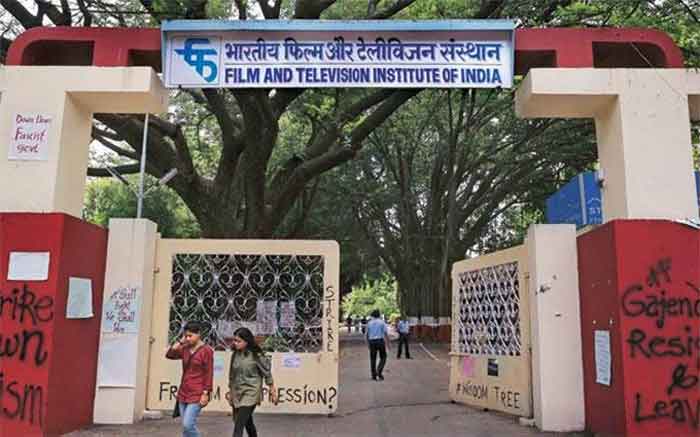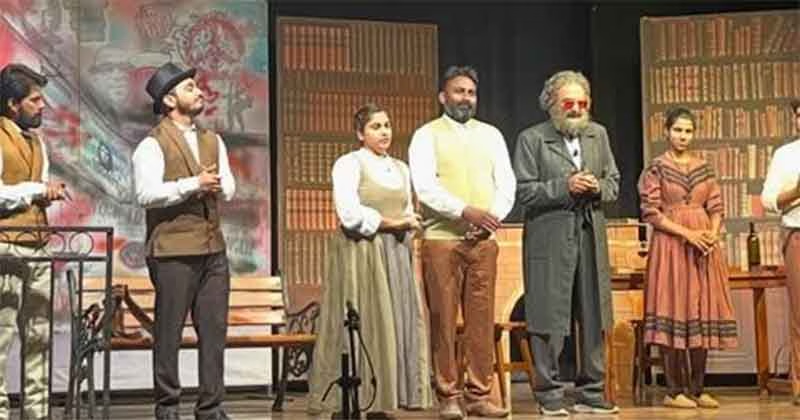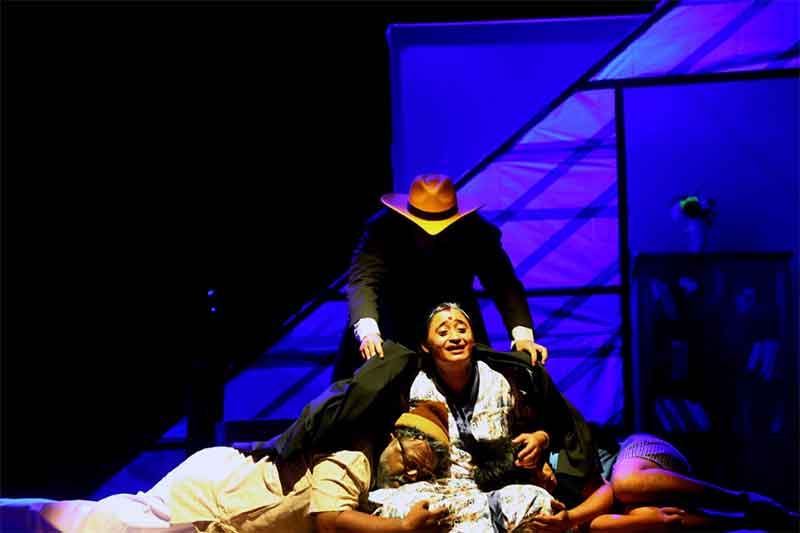
During a visit to the FTII campus in Pune last week, I found that it looked more like an army camp. There were policemen in army-type uniforms all over. One was followed everywhere by a jawan. Even a visitor to Pakistan is treated with more discretion, I found that during a visit there to attend a peace conference 20 years ago
I went to the Film and Television Institute of India to see the Prabhat Museum and found it is closed since the beginning of the pandemic. Yet, the official website of FTII says no such thing and actually says to this day that it is a must visit site.
Established in the FTII campus in the year 2001, Prabhat Museum is a must visit place when you come to FTII., the website says. Other than current activities in the campus, one can experience the heritage and legacy of Prabhat Film Company since its inception in 1931. Placed in original building of historical Prabhat Studio, ‘The Museum’ is spread over 1000 sq ft area and is divided in four sections.
The Prabhat Museum houses many important Artefacts, Costumes, Properties, Equipment used in various Prabhat Films like Chandrasena (Mukpat 1930), Agni Kankan (1932) Sierandhari (1933), Amrut Manthan (1934), Dharmatama (1935), “Sant Tukaram 1936”, Kunku (1937), ‘Sant Dynaneshwar (1940)’ Padosi (1941) etc.
But the disappointment of not being able to visit is minor compared to the implications of the kind of State we are in. There is also a larger message perhaps to film makers to be careful, you are under surveillance.
Saeed Mirza, noted film director, makes some interesting points in a chat with the Indian Express of December 19 about the freedom students enjoyed in the past in FTII. He feels protesting films may face charge of sedition but we have to stand up.
In this connection a recent lecture delivered by Ramu Ramanathan, prominent playwright, very cerebral ,is very topical. He made some very important points in his lecture last week in memory of Dr Ashok Ranade, eminent music scholar, on the issue of theatre in time of repression . He drew on theatre and protests from different continents and times from Shakespare to Mexico and the U.S.
He began with Shakespeare’s history play Richard III written in time when England was like a police state, lot of spying on citizens, religious conflict, discrimination against Catholics. Two of Shakespeare’s relatives were charged with treason, tortured and killed. He could never forget that.He used the play and its theme in a clever way to focus on current issues without attracting the wrath of the State.
Literature is our armoury, poliicians may come and go but writers will live on , their names will live on while politicians will be forgotten, Ramu observed.
Among the recent despots he cites the Machiavellian Putin and mentions his tactics, he made the Financial Times journalists wait for hours and finally gave the interview at midnight to project himself as a great, wise leader. That is how some of the despots behave.
Then there was the leader in Mexico who projected himself as highly benevolent but in his regime many students were fired upon and killed in 1968 for their protests a few days before the Olympics. Their protests were quite peaceful but some damage to the national flag was used as an excuse to inflict atrocities. The students were not at all Maoists. But the authoritarian, prosperous State and a bullish corporate class could brook no dissent. A rally in support of Castro was not tolerated.
During Covid Ramu did a lot of reading. Apart from several major writers, he read everything of Salman Rushdie, also viewed all his lectures. He quoted Rushdie’s statement that the world was divided into two sections, those who have a sense of humour and those who don’t.
He also interacts with theatre performers writers from different countries. So he has some interesting insights into Argentina, the world cup football winner nation. Its capital Buenos Aires also has a very thriving theatre scene with nearly 300 performance venues. Some similarities with India, one class here too thinks Argentia had a glorious past and is unmindful of poverty of the people at present.
The Ashok D Ranade memorial trust is doing significant work under the leadership of very competent people including Aneesh Pradhan and Chaitanya Kunte, music experts and Anjum Rajabally, screen script writer.
Vidyadhar Date is a senior journalist, author of a book on public transport and is a culture critic














































